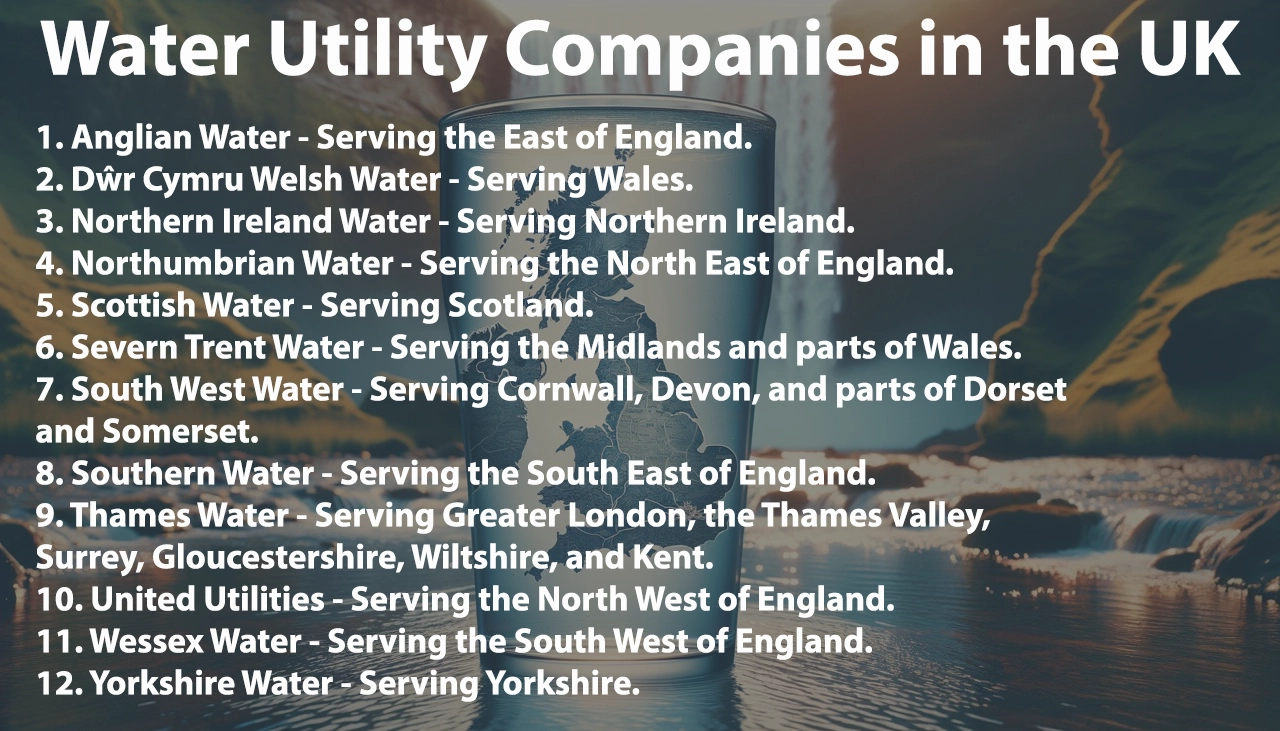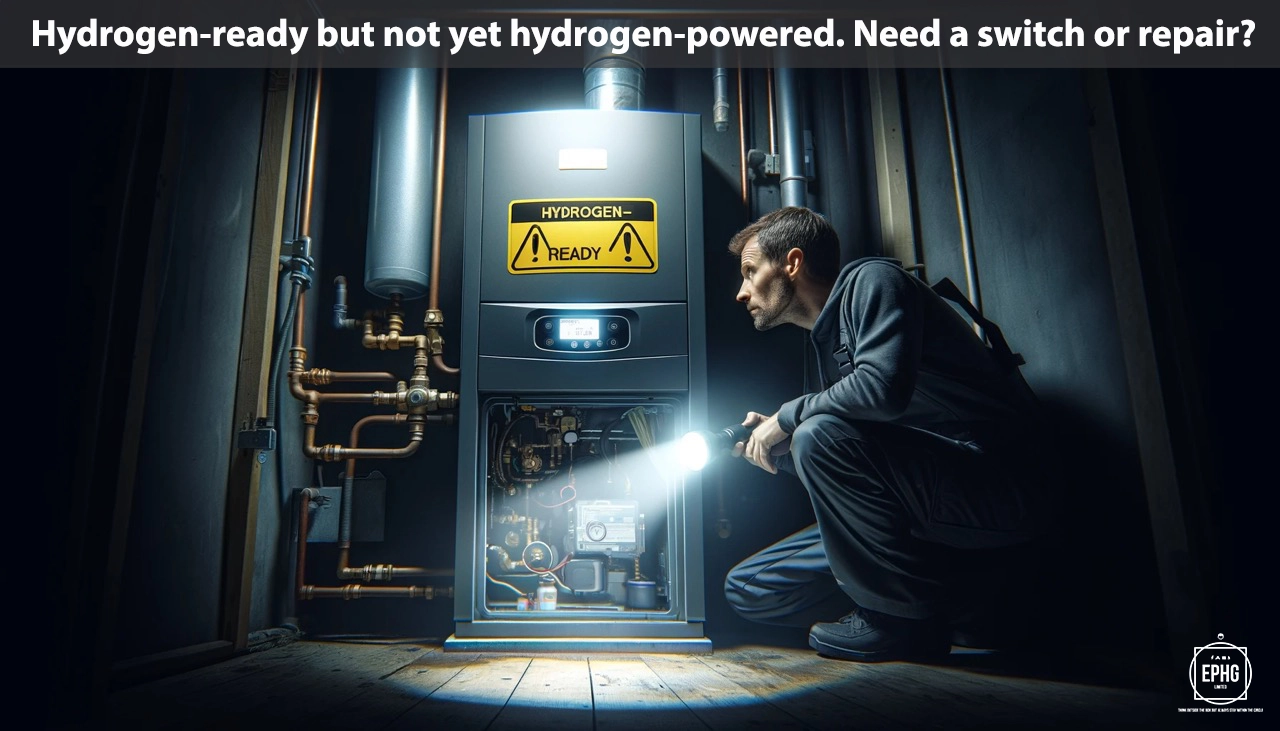
DE Postcodes for Utilities & Services in Derby
Introduction: The DE postcode area, encompassing Derby and its surrounding regions, provides a comprehensive overview of local utilities including water and electricity. This guide offers detailed insights into the services available to residents and businesses in the area.
Water in Derby
Where does the water supply come from in Derby and is there ever a shortage of water?
In Derby, the primary water supply is sourced from the River Derwent and local reservoirs, which are integral to providing the region with high-quality, treated water. Severn Trent Water manages the water treatment and distribution, ensuring that water meets all safety and quality standards before it reaches consumers. While Derby generally maintains a reliable water supply, it faces challenges such as climate variability and urban expansion. To address potential shortages, water conservation efforts are promoted, and infrastructure is continuously updated to accommodate growing demands and environmental changes. Residents are encouraged to adopt water-saving measures to help preserve this vital resource.
What is the hardness & quality of the water in Derby and can this affect your health?
The water in Derby is classified as moderately hard due to the geological composition of the region. While hard water results in more mineral deposits and could affect household appliances, it is not harmful to health. In fact, the minerals found in hard water, such as calcium and magnesium, can be beneficial in small amounts. Severn Trent Water ensures that the water's hardness is within safe levels and conducts regular testing to monitor quality and safety. Consumers can take simple measures, like installing water softeners, to manage hardness if preferred. The quality of water in Derby consistently meets high standards, ensuring it is safe for all domestic uses.
Electricity in Derby
Where does the electric supply come from in Derby and what is the future of energy there?
Derby's electricity supply is primarily derived from a combination of sources, including fossil fuels, nuclear energy, and an increasing emphasis on renewable sources like wind, solar, and biomass. The region is transitioning towards more sustainable energy solutions in line with national and global trends towards green energy. Local initiatives and investments are focusing on expanding renewable energy capacity, improving energy efficiency, and reducing carbon footprints. The future of energy in Derby is geared towards sustainability, with plans to incorporate more renewable energy sources and technologies, such as solar panels and wind turbines, into the local grid. Additionally, there is growing interest in exploring the potential of geothermal energy and further developing electric vehicle infrastructure to support a cleaner, more sustainable energy future for the area.
When is hydrogen coming to gas boilers in Derby?
The integration of hydrogen into Derby's heating systems is part of a broader national strategy to transition towards greener energy sources. Although specific timelines for Derby are not set, the city is expected to follow national guidelines and pilot projects for introducing hydrogen as an alternative to natural gas for heating. This initiative aims to reduce greenhouse gas emissions and improve air quality, aligning with the UK's goal to achieve net-zero carbon emissions by 2050. Residents are advised to keep their gas boilers well-maintained while staying informed about upcoming changes and advancements in heating technologies. The transition to hydrogen, seen as a crucial step in reducing the environmental impact of domestic heating, will be phased and coordinated with infrastructure upgrades and public awareness campaigns.
Where Does the Wastewater Go in Derby
In Derby, wastewater management is a critical component of the urban infrastructure, ensuring the health and safety of the community while protecting the environment. Wastewater from residential, commercial, and industrial sources is collected and directed to treatment facilities such as the Raynesway Wastewater Treatment Works. Here, it undergoes various levels of treatment to remove pollutants and contaminants before the clean water is safely released back into local waterways, such as the River Derwent. The process adheres to strict environmental standards to minimize the impact on the local ecosystem. Derby's investment in modern wastewater treatment technologies demonstrates the city's commitment to environmental stewardship and public health, ensuring that the waterways remain clean and safe for future generations.

Regions within the DE Postcode
Derby City
- DE1: Derby City Centre
- DE3: Mickleover
- DE21: Chaddesden, Oakwood, Spondon
- DE22: Allestree, Darley Abbey, Mackworth Estate
- DE23: Littleover, Normanton, Pear Tree
- DE24: Allenton, Alvaston, Wilmorton, Osmaston
- DE72: Ambaston, Elvaston, Shardlow, Aston-on-Trent
Surrounding Towns and Villages
- DE4: Matlock, Darley Dale, Beeley
- DE5: Ripley, Heage
- DE6: Ashbourne, Hulland Ward, Weston Underwood
- DE7: Ilkeston, Kimberley, West Hallam
- DE11: Swadlincote, Church Gresley, Newhall
- DE12: Measham, Overseal, Appleby Magna
- DE13: Burton upon Trent, Barton-under-Needwood
- DE14: Burton upon Trent, Stapenhill
- DE15: Winshill, Bretby
- DE22: Quarndon, Kedleston, Mackworth (village)
- DE56: Belper, Duffield, Heage
- DE65: Egginton, Etwall, Hatton, Hilton
- DE73: Chellaston, Barrow upon Trent, Ingleby
- DE75: Heanor, Loscoe




